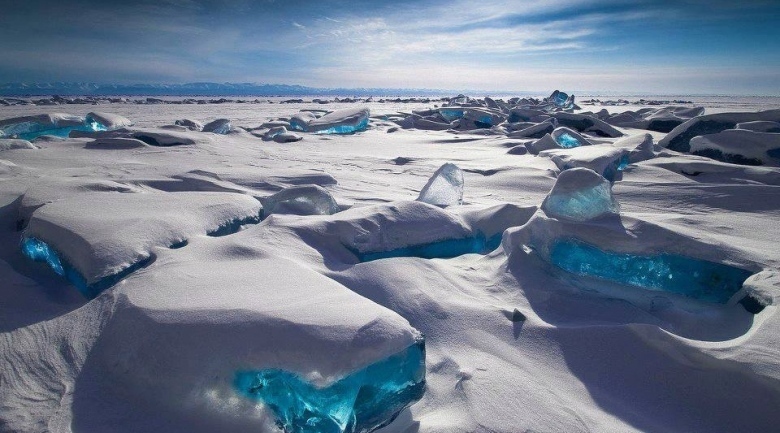
Scientists have their best view yet of the status of Antarctica’s floating ice shelves and they find them to be thinning at an accelerating rate. Fernando Paolo and colleagues used 18 years of data from European radar satellites to compile an assessment of how the ice shevles have been changing over time.
In the first half of that period, the total losses from these tongues of ice that jut out from the continent amounted to 25 cubic km per year. But by the second half, this had jumped to 310 cubic km per annum.
"For the decade before 2003, ice-shelf volume for all Antarctica did not change much," said Mr Paolo from the Scripps Institution of Oceanography in San Diego, US.
"Since then, volume loss has been significant. The western ice shelves have been persistently thinning for two decades, and earlier gains in the eastern ice shelves ceased in the most recent decade," he told BBC News.
The satellite research is published in Science Magazine. It is a step up from previous studies, which provided only short snapshots of behaviour. Here, the team has combined the data from three successive orbiting altimeter missions operated by the European Space Agency (Esa).
The findings demonstrate the value of continuous, long-term, cross-calibrated time series of information. Many of Antarctica’s ice shelves are huge. The one protruding into the Ross Sea is the size of France.
They form where glacier ice running off the continent protrudes across water. At a certain point, the ice lifts off the seabed and floats. Eventually, as these shelves continue to push outwards, their fronts will calve, forming icebergs.
If the losses to the ocean balance the gains on land though precipitation of snows, this entirely natural process contributes nothing to sea level rise. But if thinning weakens the shelves so that land ice can flow faster towards the sea, this will kick the system out of kilter. Repeat observations now show this to be the case across much of West Antarctica.
"If this thinning continues at the rates we report, some of the ice shelves in West Antarctica that we’ve observed will disappear by the end of this century," said Scripps co-author Helen Amanda Fricker.
"A number of these ice shelves are holding back 1m to 3m of sea level rise in the grounded ice. And that means that ultimately this ice will be delivered into the oceans and we will see global sea-level rise on that order."
